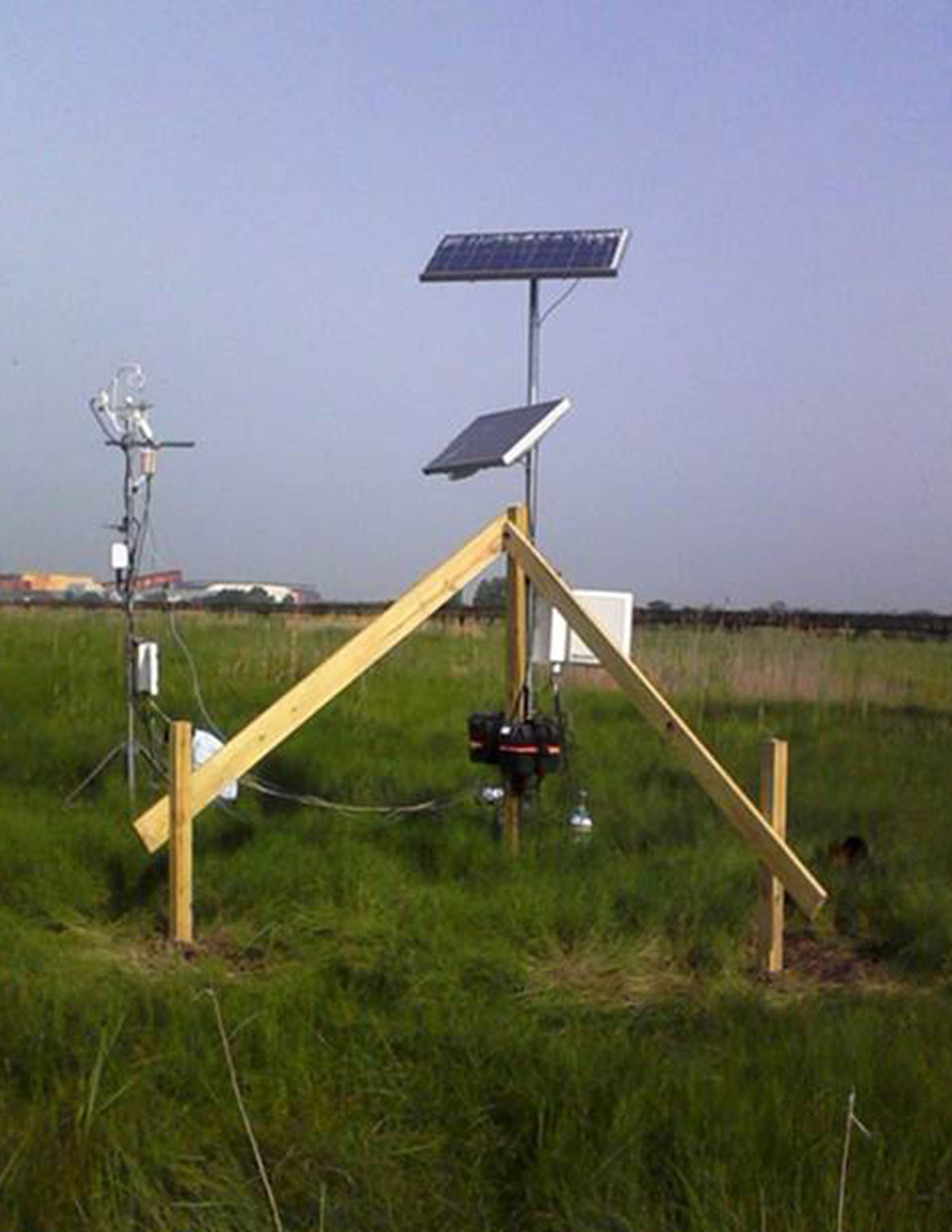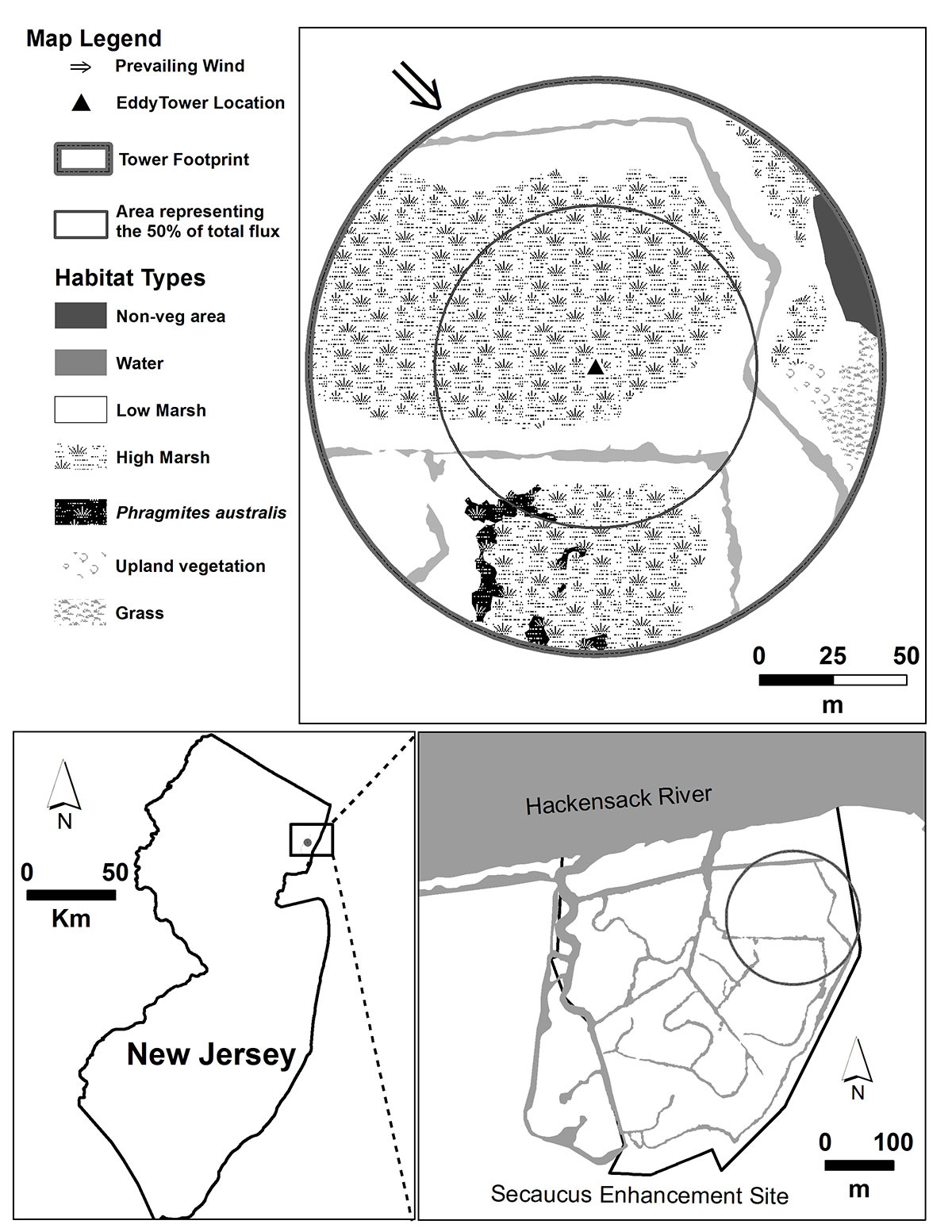CO2 Sink Strength of a Restored Marsh
Our Projects
Participants
MRRI, Rutgers University, Newark
Problem
The ability of urban estuaries to sequester carbon dioxide (CO2) and the strength of these sinks is mainly unknown and so is their cumulative effect on global climate change. Measurements of CO2 fluxes are crucial to estimate carbon (C) sink strengths from vegetation. The carbon sequestration service of these ecosystems may represent underutilized CO2 sinks that can be potentially enhanced with proper management strategies.
Objective
This project aims to estimate the Net Ecosystem Exchange (NEE) of dominant wetland communities (i.e. Phragmites australis, Spartina alterniflora and Spartina patterns) at an enhanced salt marsh site by measuring CO2 fluxes using the eddy covariance technique concomitant with soil and meteorological measurements. Vegetation communities are fitted with an eddy flux tower to continuously measure 3D wind with a sonic anemometer as well as CO2 and H2O concentrations averaged over 30 minutes. Supplemental measurements include net radiation, soil moisture, soil heat flux, soil temperature, air temperature, and air humidity which will also be monitored continuously.



